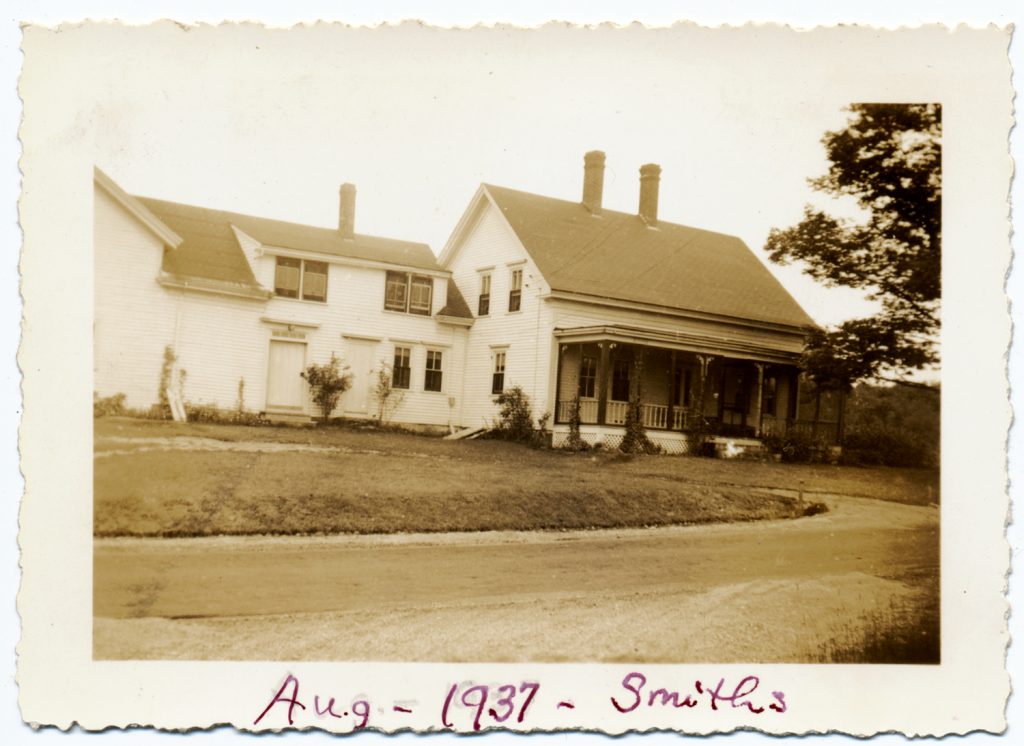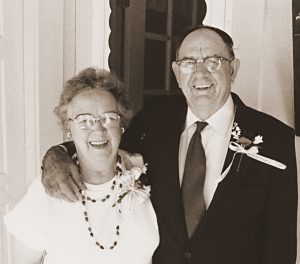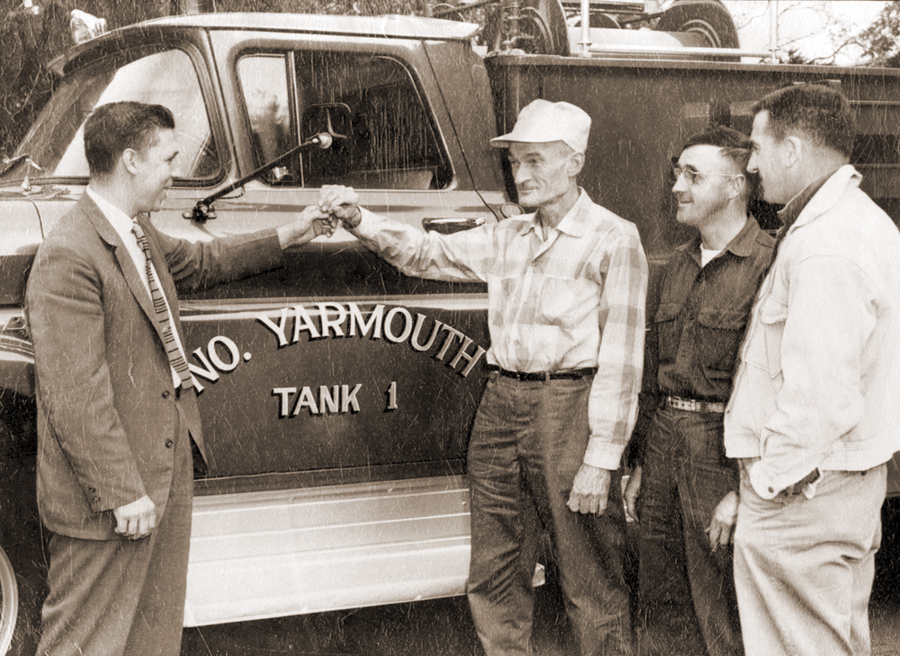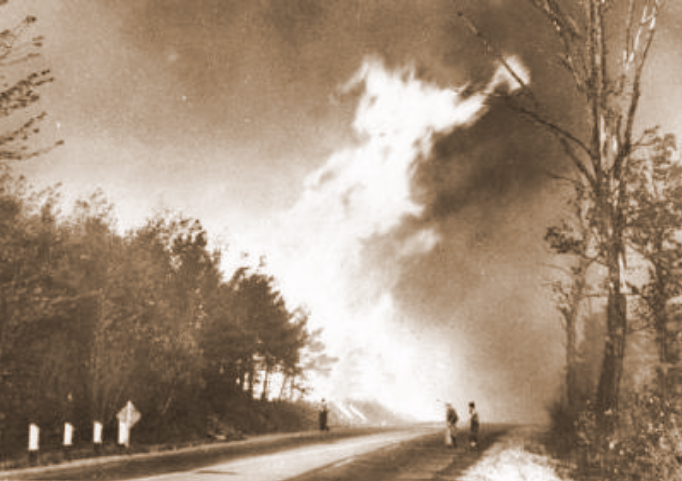There’s nothing that puts us all on edge than hearing a siren scream by on a quiet evening. Fire … something everybody worries about.
Just imagine that frightening situation—AND—having no North Yarmouth Fire Rescue.
That was the situation in 1944, when our town had no organized way to fight fires.

On the night of July 17, 1944, North Yarmouth Tax Collector Phyllis Smith and Road Commissioner Herman Smith were asleep, along with their two young daughters, in the house across the street from our current Fire Rescue station. They lived in the upstairs apartment. A few years back, Phyllis told the tale of that night.

“At that time our house—Grammy Smith’s—was a cape, with a barn and an attached ell. From our bedroom window we could see out into our kitchen.
“I was woken up by a crackling noise. I sat up, thinking it was water splashing in the sink and I wondered how I had left the faucet on. Then I looked out our window and saw my kitchen curtains burning. Well, at the same time Gladys and Neal York pulled into the driveway, yelling at us that we were on fire.
“We had just the two girls then: Janice was four, and Marcia was 16 months old; she had just started walking and we’d put a chair across the top of the stairs to keep her safe. They were in a bedroom across the hall. Hermie ran in and grabbed them, put one under each arm. But then he had to set one down so that he could take away the chair. He got downstairs with only Marcia, then he had to go back up for Janice.
“By that time the smoke was so thick he didn’t think he could get to her, but he did. He got her downstairs and we set her on the couch and she just fell right over. Grammy was up, and she said to call to Lester (Hermie’s father). We did, and then we got out of there. But Grammy went up the back stairway to our apartment with an old fire extinguisher, squirting at the fire, trying to put it out. She was like that.
“I took the car out of the old building across the street and drove barefoot over to my in-laws, at the corner of Route 9 and Greely Road). As I was driving, the Cumberland Fire Department passed me going toward our house, so I just pulled off the road and let them pass. Hermie was member of Cumberland, so he stayed right there at the house to fight the fire.
“We lost just about everything. The upstairs was burned out. The downstairs didn’t have as much damage but we all had to move out. Grammy went to live at Winnie Beal’s, then moved in with Lester. We stayed with my in-laws.” (The Smiths pitched a tent down the road on the lot where they were had been building a house, and lived there until September; they moved into the unfinished building when a hurricane was predicted.)
1944 was a watershed moment for North Yarmouth: in 1944 there was a major fire every month from April through October. In one particularly tragic fire in August, two young children died in a barn fire.
The town knew that action must be taken. At Town Meeting in 1945 in Old Town House, residents voted to raise $700 for fire protection, and the North Yarmouth Fire Company was born. Herman Smith was voted Chief.

Just in time. In fall of 1947, huge forest fires swept through Maine from Bar Harbor to Kennebunk.

North Yarmouth was spared, but the Fire Company was on 24-hour alert: the town’s firefighters were “boots on the ground” and their families backed them up, with food and other assistance. That year, the Women’s Auxiliary was formed. Their fundraising for equipment and supplies was essential. Their first purchase was a fire siren!
History tells a scary tale … but this one had a happy ending: the North Yarmouth Fire Rescue. Thank you to the men and women of NYFR and their families—for more than 80 years of protection they give us on a 24-hour basis.